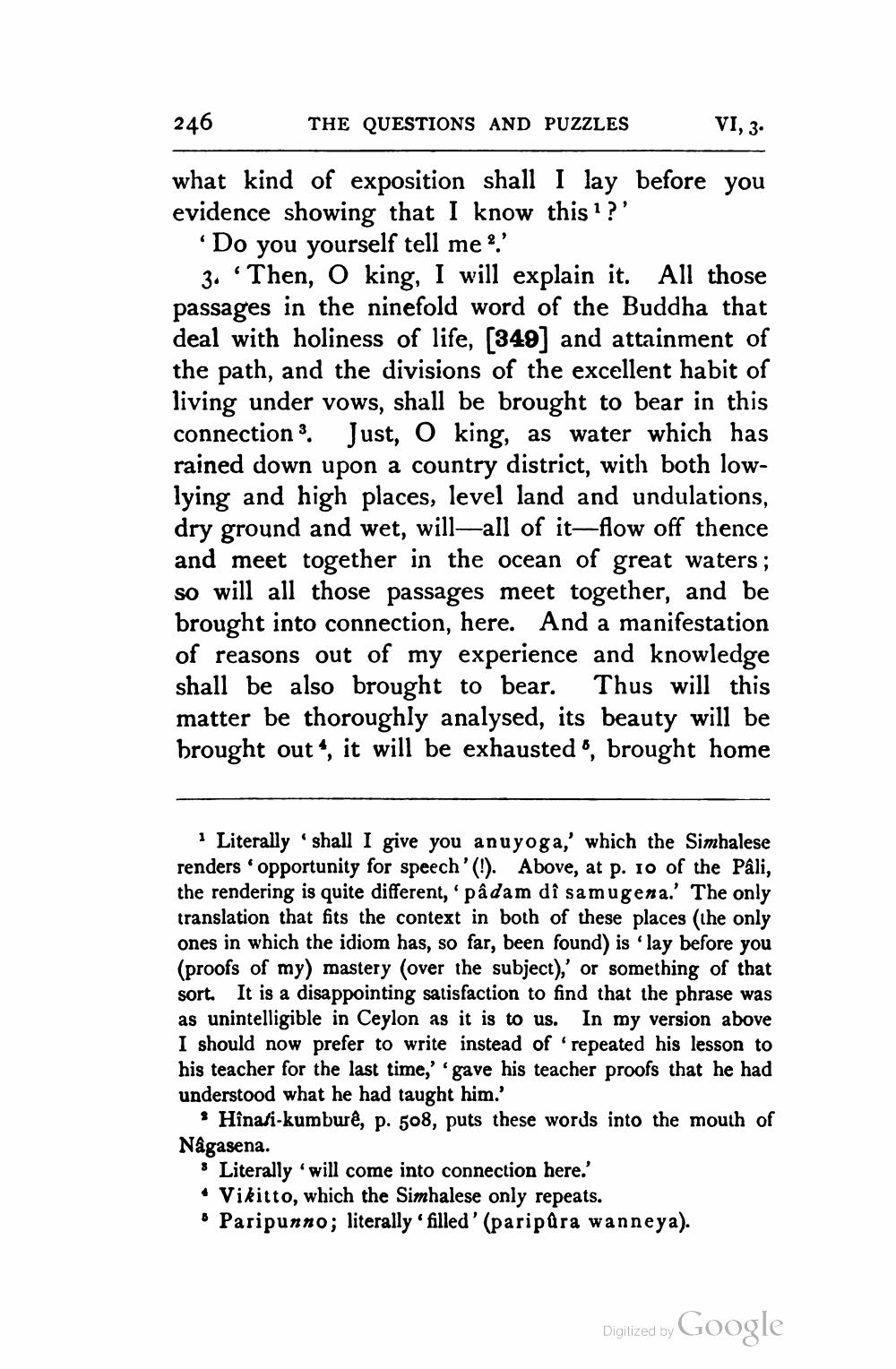________________
246
THE QUESTIONS AND PUZZLES
VI, 3.
what kind of exposition shall I lay before you evidence showing that I know this1?'
'Do you yourself tell me '.'
3. Then, O king, I will explain it. All those passages in the ninefold word of the Buddha that deal with holiness of life, [349] and attainment of the path, and the divisions of the excellent habit of living under vows, shall be brought to bear in this connection 3. Just, O king, as water which has rained down upon a country district, with both lowlying and high places, level land and undulations, dry ground and wet, will-all of it-flow off thence and meet together in the ocean of great waters; so will all those passages meet together, and be brought into connection, here. And a manifestation of reasons out of my experience and knowledge shall be also brought to bear. Thus will this matter be thoroughly analysed, its beauty will be brought out, it will be exhausted, brought home
1 Literally 'shall I give you anuyoga,' which the Simhalese renders 'opportunity for speech' (!). Above, at p. 10 of the Pâli, the rendering is quite different,' pâdam dî samugena.' The only translation that fits the context in both of these places (the only ones in which the idiom has, so far, been found) is 'lay before you (proofs of my) mastery (over the subject),' or something of that sort. It is a disappointing satisfaction to find that the phrase was as unintelligible in Ceylon as it is to us. In my version above I should now prefer to write instead of 'repeated his lesson to his teacher for the last time,' 'gave his teacher proofs that he had understood what he had taught him.'
• Hînati-kumburê, p. 508, puts these words into the mouth of Nâgasena.
Literally 'will come into connection here.' Vikitto, which the Simhalese only repeats. Paripunno; literally 'filled' (paripura wanneya).
Digitized by
Google




